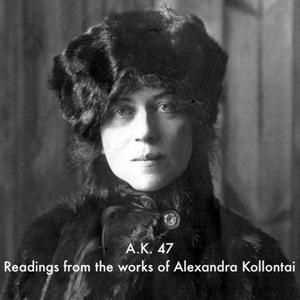
A.K. 47 - Selections from the Works of Alexandra Kollontai
Kristen R. Ghodsee
Kristen R. Ghodsee reads and discusses 47 selections from the works of Alexandra Kollontai (1872-1952), a socialist women's activist who had radical ideas about the intersections of socialism and women's emancipation. Born into aristocratic privilege, the Russian Kollontai was initially a member of the Mensheviks before she joined Lenin and the Bolsheviks and became an important revolutionary figure during the 1917 Russian Revolution. Kollontai was a socialist theorist of women’s emancipation and a strident proponent of sexual relations freed from all economic considerations. After the October Revolution, Kollontai became the Commissar of Social Welfare and helped to found the Zhenotdel (the women's section of the Party). She oversaw a wide variety of legal reforms and public policies to help liberate working women and to create the basis of a new socialist sexual morality. But Russians were not ready for her vision of emancipation, and she was sent away to Norway to serve as the first Russian female ambassador (and only the third female ambassador in the world).In this podcast, Kristen R. Ghodsee – a professor of Russian and East European Studies at the University of Pennsylvania and the author of Why Women Have Better Sex Under Socialism: And Other Arguments for Economic Independence (Bold Type Books 2018) – selects excerpts from the essays, speeches, and fiction of Alexandra Kollontai and puts them in context. Each episode provides an introduction to the abridged reading with some relevant background on Kollontai and the historical moment in which she was writing.
- 18 minutes143 - A.K. 47 - Who Needs the War? - Part 4
Kristen Ghodsee reads the fourth section of Alexandra Kollontai's 1915 essay about World War I–"Who Needs the War?"–and looks for lessons applicable to the present day.
This translation is from a 1984 collection of Kollontai's writing published by Progress Publishers in the Soviet Union, which claims that the essay was written while Kollontai was in exile in Norway. She sent it to Vladimir Lenin (then in exile in Switzerland) who also edited it before publication. The final pamphlet was first published in 1916. It went into multiple editions and was distributed widely across Europe and Russia.
[Sorry there was a glitch in the original upload. This is the correct episode now]
Mentioned in this episode:
"How to do escapism in the Trump era," The New Republic
"The Other Great Depression," Le Monde Diplomatique in English, French, Spanish, Farsi, Bulgarian, and Esperanto
Anachoresis - withdrawal into the desertThanks so much for listening. This podcast has no Patreon account and receives no funding. If you would like to support the work being done here, please spread the word and share with your friends and networks, and consider exploring the following links:
Buy Kristen Ghodsee's new book now: Everyday Utopia
Subscribe to Kristen Ghodsee's (very occasional) free newsletter.
Learn more about Kristen Ghodsee's work at: www.kristenghodsee.com3 December 2024, 6:00 pm - 26 minutes 37 seconds142 - A.K. 47 - Who Needs the War? - Part 3 (and a special message for election eve)
Kristen Ghodsee reads the third section of Alexandra Kollontai's 1915 essay about World War I–"Who Needs the War?"–and looks for lessons applicable to the present day.
This translation is from a 1984 collection of Kollontai's writing published by Progress Publishers in the Soviet Union, which claims that the essay was written while Kollontai was in exile in Norway. She sent it to Vladimir Lenin (then in exile in Switzerland) who also edited it before publication. The final pamphlet was first published in 1916. It went into multiple editions and was distributed widely across Europe and Russia.
Ghodsee also discusses the 2024 presidential election in the United States, and offers a message of hope in the event of a Trump victory.
Mentioned in this episode:
Kristen Ghodsee discusses utopia and social dreaming on "What Could Go Right?"Thanks so much for listening. This podcast has no Patreon account and receives no funding. If you would like to support the work being done here, please spread the word and share with your friends and networks, and consider exploring the following links:
Buy Kristen Ghodsee's new book now: Everyday Utopia
Subscribe to Kristen Ghodsee's (very occasional) free newsletter.
Learn more about Kristen Ghodsee's work at: www.kristenghodsee.com4 November 2024, 11:00 pm - 31 minutes141 - A.K. 47 - Bonus Episode - Is Internationalism possible?
In this episode, Kristen Ghodsee discusses Alexandra Kollontai, nationalism, internationalism, and supranationalism with her daughter, just home from Ireland for fall break. Trigger warning: lots of Irish history!
Mentioned in this episode:
"Imagine"
by John Lennon (and Yoko Ono)
"Imagine there's no heaven
It's easy if you try
No hell below us
Above us, only skyImagine all the people
Livin' for today
AhImagine there's no countries
It isn't hard to do
Nothing to kill or die for
And no religion, tooImagine all the people
Livin' life in peace
YouYou may say I'm a dreamer
But I'm not the only one
I hope someday you'll join us
And the world will be as oneImagine no possessions
I wonder if you can
No need for greed or hunger
A brotherhood of manImagine all the people
Sharing all the world
YouYou may say I'm a dreamer
But I'm not the only one
I hope someday you'll join us
And the world will live as one"Thanks so much for listening. This podcast has no Patreon account and receives no funding. If you would like to support the work being done here, please spread the word and share with your friends and networks, and consider exploring the following links:
Buy Kristen Ghodsee's new book now: Everyday Utopia
Subscribe to Kristen Ghodsee's (very occasional) free newsletter.
Learn more about Kristen Ghodsee's work at: www.kristenghodsee.com24 October 2024, 11:00 am - 21 minutes 46 seconds140 - A.K. 47 - Who Needs the War? - Part 2
Kristen Ghodsee reads Alexandra Kollontai's 1915 essay about World War I–"Who Needs the War?"–and looks for lessons applicable to the present day.
This translation is from a 1984 collection of Kollontai's writing published by Progress Publishers in the Soviet Union, which claims that the essay was written while Kollontai was in exile in Norway. She sent it to Vladimir Lenin (then in exile in Switzerland) who also edited it before publication. The final pamphlet was first published in 2016. It went into multiple editions and was distributed widely across Europe and Russia.
Ghodsee also discusses the 2024 presidential election in the United States.
Mentioned in this episode:
Elon Musk reveals cybercabs, robovans, and the Optimus robot: https://www.youtube.com/watch?v=Mu-eK72ioDk
If you are an American citizen, especially in a swing state, please register to vote here: https://voterizer.org/Thanks so much for listening. This podcast has no Patreon account and receives no funding. If you would like to support the work being done here, please spread the word and share with your friends and networks, and consider exploring the following links:
Buy Kristen Ghodsee's new book now: Everyday Utopia
Subscribe to Kristen Ghodsee's (very occasional) free newsletter.
Learn more about Kristen Ghodsee's work at: www.kristenghodsee.com13 October 2024, 10:00 am - 20 minutes 55 seconds139 - A.K. 47 - Who Needs the War? - Part 1
Kristen Ghodsee reads Alexandra Kollontai's 1915 essay about World War I–"Who Needs the War?"–and looks for lessons applicable to the present day.
This translation is from a 1984 collection of Kollontai's writing published by Progress Publishers in the Soviet Union, which claims that the essay was written while Kollontai was in exile in Norway. She sent it to Vladimir Lenin (then in exile in Switzerland) who also edited it before publication. The final pamphlet went into multiple editions and was distributed widely across Europe and Russia.Thanks so much for listening. This podcast has no Patreon account and receives no funding. If you would like to support the work being done here, please spread the word and share with your friends and networks, and consider exploring the following links:
Buy Kristen Ghodsee's new book now: Everyday Utopia
Subscribe to Kristen Ghodsee's (very occasional) free newsletter.
Learn more about Kristen Ghodsee's work at: www.kristenghodsee.com23 September 2024, 10:00 am - 23 minutes 42 seconds138 - Bonus Episode – Socialism: A Logical Introduction with Professor Scott Sehon
Kristen Ghodsee speaks to Scott R. Sehon, a professor of philosophy, about his new book, Socialism: A Logical Introduction, and why we should use arguments to make a case for socialism and against capitalism.
The first ten U.S.-based listeners to email [email protected] with a name and address will get a free copy of Professor Sehon's new book.
Mentioned in this episode:- Anti-anti-communism
- "What Democratic Socialists Should Think about Anti-Communism"
- www.scottrsehon.com
Thanks so much for listening. This podcast has no Patreon account and receives no funding. If you would like to support the work being done here, please spread the word and share with your friends and networks, and consider exploring the following links:
Buy Kristen Ghodsee's new book now: Everyday Utopia
Subscribe to Kristen Ghodsee's (very occasional) free newsletter.
Learn more about Kristen Ghodsee's work at: www.kristenghodsee.com25 March 2024, 10:00 am - 22 minutes 1 second137 - A.K. 47 - Bonus Episode - Claudia Jones's 8 March 1950 International Women's Day Speech
For International Women's Day, Kristen Ghodsee reads the Black Trinidadian activist and journalist Claudia Jones's speech for International Women's Day in 1950. This speech, (and the published version which appeared afterwards) led to Jones's arrest and eventual deportation from the United States. Jones was a member of the CPUSA, and believed that women's emancipation and civil rights required a strong stance against imperialism and militarism. She say capitalism, patriarchy, and white supremacy are deeply intertwined ideologies.
Read the full text of Claudia Jones's speech here
Listen to Kristen Ghodsee's IWD guest appearance on the Upstream Podcast
Watch Kristen Ghodsee's IWD guest appearance on the Total Liberation Podcast
Read Kristen Ghodsee's 2019 Op-Ed in the New York Times on IWD
Read an Associated Press article about 8 March 2024Thanks so much for listening. This podcast has no Patreon account and receives no funding. If you would like to support the work being done here, please spread the word and share with your friends and networks, and consider exploring the following links:
Buy Kristen Ghodsee's new book now: Everyday Utopia
Subscribe to Kristen Ghodsee's (very occasional) free newsletter.
Learn more about Kristen Ghodsee's work at: www.kristenghodsee.com8 March 2024, 8:00 am - 20 minutes136 - A.K. 47 - "Diplomat, Novelist, Leader - Versatile Mme. Kollontay"
Kristen Ghodsee reads a profile of Alexandra Kollontai which appeared in the Washington Post on May 15, 1927 when Kollontai was serving as the Soviet ambassador to Mexico.
Mentioned in this episode: The hardcover of Everyday Utopia is on sale at Amazon.com for $14.99 (50% off)Thanks so much for listening. This podcast has no Patreon account and receives no funding. If you would like to support the work being done here, please spread the word and share with your friends and networks, and consider exploring the following links:
Buy Kristen Ghodsee's new book now: Everyday Utopia
Subscribe to Kristen Ghodsee's (very occasional) free newsletter.
Learn more about Kristen Ghodsee's work at: www.kristenghodsee.com17 February 2024, 7:00 pm - 32 minutes 59 seconds135 - A.K. 47 - Bonus Episode - 5th Anniversary Conversation about Parenthood
Kristen Ghodsee and her daughter share a conversation about Kollontai's pro-natalism and the current discourse about the BirthStrike. Are the relevant moral imperatives about having or not having children? And how does the climate crisis factor into people's decisions? We also discuss the future of the podcast and the newly discovered fact that it is listened to in 100 countries around the world.
Thanks so much for listening. This podcast has no Patreon account and receives no funding. If you would like to support the work being done here, please spread the word and share with your friends and networks, and consider exploring the following links:
Buy Kristen Ghodsee's new book now: Everyday Utopia
Subscribe to Kristen Ghodsee's (very occasional) free newsletter.
Learn more about Kristen Ghodsee's work at: www.kristenghodsee.com8 January 2024, 9:00 am - 17 minutes 53 seconds134 - A.K. 47 - The Labor of Women in the Evolution of the Economy - Part 3
Kristen Ghodsee reads the final part of Alexandra Kollontai's 1921 essay, "The Labor of Women in the Evolution of the Economy" to explore Kollontai's arguments for the socialization of the family and the socialist uses of the maternal instinct. Although Kollontai is openly pro-natalist, and emphasizes that motherhood is a social obligation to help produce new workers for the world's first workers state, she is making these arguments to suspicious men in the Bolshevik government who do not want to expend resources to socialize the domestic labor that Russian women historically did for free.
Mentioned in this episode:- Kristen Ghodsee on Dan Snow's History Hit podcast talking about "Pythagoras' Utopia"
- Also, check out a free pdf of the conclusion of Everyday Utopia: "The Star Trek Game Plan" (Click the green button at the top of the page)
- Kristen Ghodsee's Year in Reading at The Millions
- "Marxism and Mistletoe," book recommendations for the lefties in your life at Lithub.com
Also, wishing everyone a Happy New Year!
Thanks so much for listening. This podcast has no Patreon account and receives no funding. If you would like to support the work being done here, please spread the word and share with your friends and networks, and consider exploring the following links:
Buy Kristen Ghodsee's new book now: Everyday Utopia
Subscribe to Kristen Ghodsee's (very occasional) free newsletter.
Learn more about Kristen Ghodsee's work at: www.kristenghodsee.com31 December 2023, 9:00 pm - 22 minutes 36 seconds133 - A.K. 47 - The Labor of Women in the Evolution of the Economy - Part 2
Kristen Ghodsee reads the second part of Alexandra Kollontai's 1921 essay, "The Labor of Women in the Evolution of the Economy" to explore Kollontai's arguments for the socialization of the family and the socialist uses of the maternal instinct. Although Kollontai is openly pro-natalist, and emphasizes that motherhood is a social obligation to help produce new workers for the world's first workers state, she is making these arguments to suspicious men in the Bolshevik government who do not want to expend resources to socialize the domestic labor that Russian women historically did for free.
Mentioned in this episode:- Alexandria Shaner's review of the podcast for ZNet
- Behavioral Scientist's Notable Books of 2023
- A free pdf of the conclusion of Everyday Utopia: "The Star Trek Game Plan" (Click the green button at the top of the page)
Thanks so much for listening. This podcast has no Patreon account and receives no funding. If you would like to support the work being done here, please spread the word and share with your friends and networks, and consider exploring the following links:
Buy Kristen Ghodsee's new book now: Everyday Utopia
Subscribe to Kristen Ghodsee's (very occasional) free newsletter.
Learn more about Kristen Ghodsee's work at: www.kristenghodsee.com23 December 2023, 10:00 pm - More Episodes? Get the App
Your feedback is valuable to us. Should you encounter any bugs, glitches, lack of functionality or other problems, please email us on [email protected] or join Moon.FM Telegram Group where you can talk directly to the dev team who are happy to answer any queries.
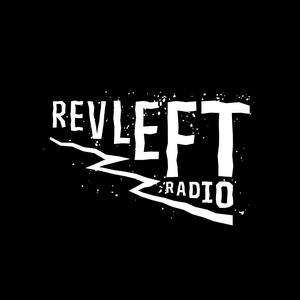 Revolutionary Left Radio
Revolutionary Left Radio
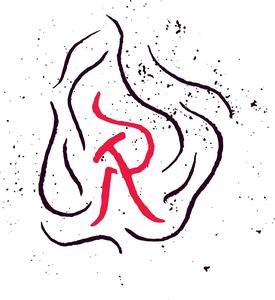 Red Menace
Red Menace
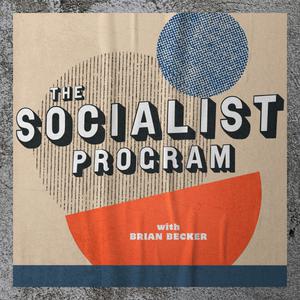 The Socialist Program with Brian Becker
The Socialist Program with Brian Becker
 Guerrilla History
Guerrilla History
 Jacobin Radio
Jacobin Radio
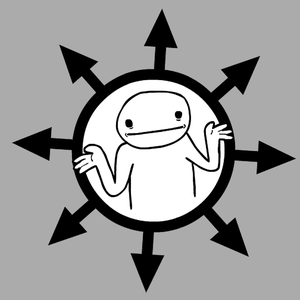 Srsly Wrong
Srsly Wrong